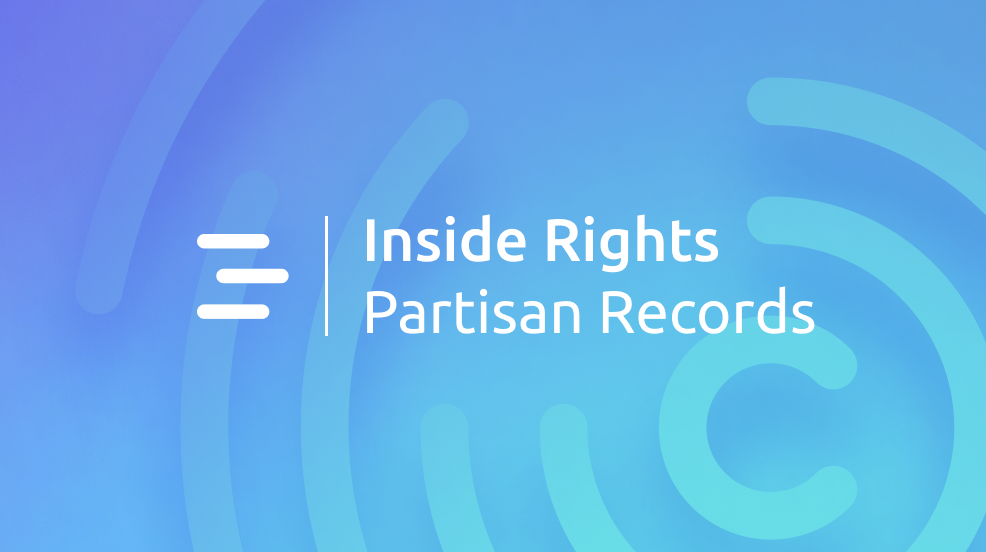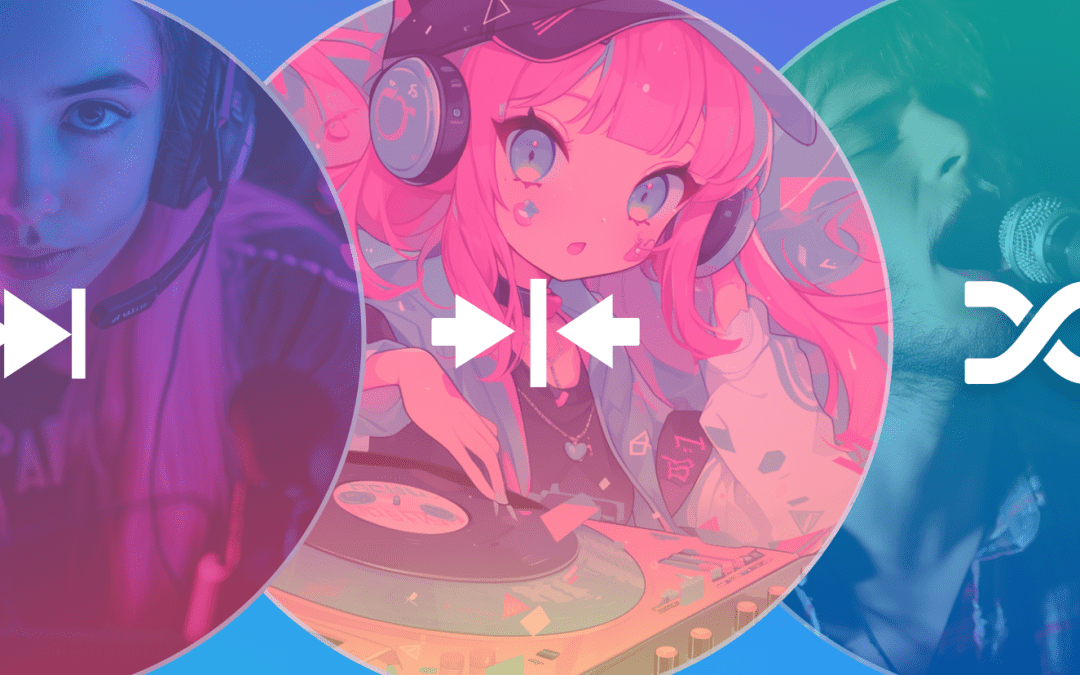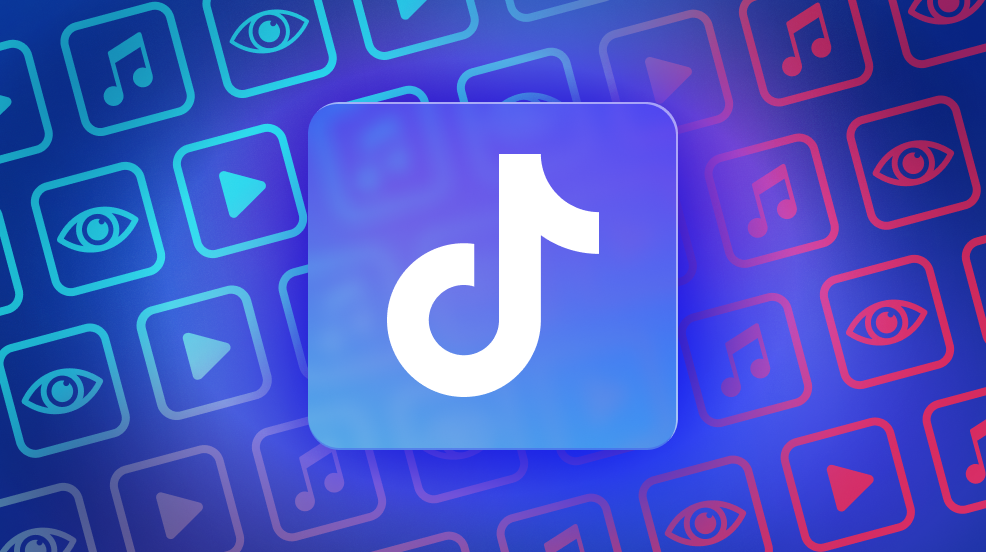How the growing creator economy impacts metadata, record labels, and attribution
Inside Rights is an interview series hosted by Pex. As the trusted global leader in digital rights technology, we routinely speak with rightsholders about their copyright challenges and successes. We hope this series sheds light on the complexities of copyright use on social media and the importance of proper attribution for platforms, rightsholders, and content creators.
Metadata is one of the most important parts of the attribution and compensation process, and it can be critical to the success of a song, album, or artist. Accurate metadata is not only important in order for rightsholders to get paid properly, but also for discoverability. Despite its value, metadata is often overlooked or oversimplified, leading to a host of issues for music rightsholders. Independent artists are especially vulnerable to metadata issues, even if they have a label or distributor to help.
I spoke with Jessica Von Hertsenberg from Partisan Records about her experience with metadata and why it’s critical in today’s digital world. Read the interview below to learn how metadata and attitudes around it have changed over recent years, why data is important for labels when finding new artists or distributing releases, and how the creator economy impacts metadata.
Courtnay Moriarty: Welcome! Tell us a bit about yourself and what you do at Partisan.
Jessica Von Hertsenberg: I am currently the Senior Digital Operations Manager at Partisan and I’m responsible for overseeing their digital supply chain. I’m communicating with our distributors, making sure that all of our releases are delivered, working with our program managers and also our management to make sure that everything is delivered to their standards and specs, and then troubleshooting when things go wrong.
Prior to Partisan, I was at AWAL working as a release manager. I was responsible for working with our top tier clients to collect all of their metadata and make sure that it was set up in our system, so that it could send through to DSPs correctly. I spent a lot of time looking at metadata, trying to figure out better data, and trying to figure out what metadata is important on the royalties and collection side, because those two things are very different.
CM: Can you elaborate…how are royalties and collections different?
JVH: When I was thinking through this, something that came up over and over again was, what are metadata people worried about when they’re setting up releases? It’s not a lot. And when a new artist is joining, they’re just thinking “how is my release displayed on the DSPs?” They’re not thinking about how many points they should be giving their producers in order to split the royalties on the backend. They’re not thinking about registering their neighboring rights with people. They’re not thinking about all these different aspects. If they have a label behind them, the label can help them, but if they’re just going through a distributor, there’s a lot I think is being missed.
The lack of standards across the industry – it’s just so much for the artists. It’s like “someone got in touch with me that there’s a conflict here or someone got in touch with me that they want to be part of the songwriting credit, so now I have to do something.” It’s all very reactionary. There’s no standard list of “this is the information that I need to get started, and this is what is going to enable me to deliver a nice, clean product, but also get paid what it’s worth for the lifetime of the product.”
CM: How has the attitude towards metadata changed in recent years? How do you see it changing in the nearterm?
JVH: I think there’s a lot more attention on metadata and what it has the potential to do for the industry. You see everything about blockchain and how this could be used to standardize all the metadata for the industry if we could just get it on the blockchain. But, it’s a little harder in practice to say, “We know that metadata is important and we know that we need to have this information, and we know that these are the boxes that we should be checking every single time we have a product that’s being delivered.”
It’s actually getting more complicated because the industry is growing. There are less barriers to entry for artists to come in and distribute their music through a DistroKid or a TuneCore, or just throw their music up on SoundCloud or YouTube or TikTok. There’s less oversight on the industry as a whole and on any sort of metadata as a whole.
The statistics just came out that there’s something like 60,000 songs uploaded to Spotify every single day, and there’s no way that every single one of those songs is properly attributed and is properly looked over and has correct metadata assigned to it. I think it’s great that there is a lot of attention on it, but I still don’t think there’s a good solution, because it’s just this growing beast right now.
CM: There’s multiple contributors and many different people who are involved in any given composition or sound recording. Who’s responsible for making sure that metadata is correct?
JVH: I think that’s part of the problem, because we as a label try to make sure that our metadata is clean and everyone who needs to be attributed is attributed. But, we’re relying on managers to give us all of the performer credits that need to go in for naming rights registration. We can explain exactly what the data needs to be, but that’s the first breakdown. Even when we’re taking that information and registering the sound recordings with the metadata that we’re given, we’re being paid out for the rightsholder and at the same time, artists have to register themselves in order to get their part of the share. There are so many different bits of information that you need to account for that it’s almost impossible to keep track of it all and to even know what you need to keep track of.
CM: There’s a lot of talk about the creator economy and the nature of how content is created and distributed. What’s your thoughts on the creator economy and the role that labels like Partisan are going to play in it?
JVH: It’s both a problem and a good thing that anyone can upload music at any time. It’s fantastic that people get a chance to do what they love and they don’t have to go through a label and they don’t have to catch the ears of an A&R person – they don’t have to sign away all of their rights just to distribute their music to the world.
But on the flip side, you have this problem where not every single artist is going to be able to sign with a label. So, if you are going to strike out on your own and take this on by yourself, that’s where it comes back to this idea of education. It doesn’t just mean that you can put music up and then everything will work properly. You have to figure out for yourself what you need to do in order to get paid. What information are you responsible for? Who do you need to be signing contracts with so that down the line you’re not screwed over?
It’s a good question, but it’s a difficult one, because the more people who are able to have access to this, the more complicated things become. At least from the metadata side, every single time something is uploaded, then there’s more data in there, and you’re not able to know how much data can actually be processed at any given time. Because of COVID-19, there’s major backlogs in data processing and paying out and getting royalties. And the more information there is, that’s just going to keep compounding.
CM: How does this new creator focused world change things for you? How much are you looking at data when you’re looking at a new artist?
JVH: It’s all about data now. It’s very rare anymore that you’re actually going to five shows a night. Sometimes things do happen organically or there are places that put on showcases for new artists, and you will always see a line of people in the back watching that. But more often than not, they’re just spending time trawling metrics and seeing “oh, this artist is taking off on YouTube, or there’s a lot of chatter about this artist, or an artist that we’re working with said that they discovered them somewhere.”
When you’re getting to the point where you’re signing a new artist, that data is what you’re using to tell people to care about them; that’s what you’re using when you’re talking to DSPs; that’s what you’re using when you’re trying to actually market the artist.
That’s a wrap!
Stay tuned for more Inside Rights posts as we continue to interview music rightsholders about their challenges and successes. Interested in learning more about Pex’s digital rights technology for music rightsholders? Reach out at [email protected].
About Partisan: Partisan Records is an independent record company headquartered in New York. Founded by Tim Putnam and Ian Wheeler in 2007, Partisan has enjoyed success with artists including Cigarettes After Sex, IDLES, and Fontaines D.C. In combination with Knitting Factory Records, Partisan is the custodian of the Fela Kuti recorded music catalog. Tim Putnam is President of Partisan, which also runs an office in the UK. In June 2017, Partisan named Zena White the Managing Director of both Partisan Records and its sister company, Knitting Factory Records.











